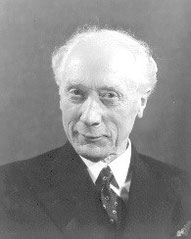DEFINING THE ALEXANDER TECHNIQUE Tim Soar © 1999
10. Frederick Matthias Alexander

Frederick Matthias Alexander, or “FM” as he was always known, was born in Wynyard, Tasmania on January 20th 1869. Although a weak child he displayed a talent for handling horses which remained a central interest throughout his life. Often unable to attend school because of his poor health, he read the Classics at home and developed the ambition to become a Shakespearean actor and reciter.
Between the ages of 16 and 19 he worked as a clerk for a local tin mining company, saving enough money in three years to fund a six month stay in Melbourne, staying with relations and taking lessons in elocution, acting and the violin. He spent, in all, six years in Melbourne, his obvious intelligence securing him casual work to make ends meet whilst he gradually built a reputation in his chosen field through his recitals and production of plays. After a successful performing tour of Tasmania he embarked on a busy tour of New Zealand in 1894 and the success of his career seemed assured.
However, as his workload increased, he began to experience problems with his voice, suffering from hoarseness, loss of voice and, to his horror, an audible gasping for breath – something he abhorred in other performers.
His doctors advised resting his voice and prescribed gargles, but his problems only got worse, reaching a head when he found himself struggling to make himself heard soon after the start of a
particularly important recital. Talking with his doctor soon afterwards he made a simple but inspired leap of reasoning: he argued that since speaking on stage is not inherently harmful to the
voice, he must be doing something extra and unnecessary to himself when he performed which was harmful. The doctor could not fault his logic, but was unable to tell him what this harmful habit
was.
Alexander began to observe himself ever more closely and began a series of experiments on himself which led to the development of his technique.l Realising that he had chanced upon a principle which had far wider significance than just voice training, he set up a teaching practice in Melbourne, moving later to Sydney and finally, in 1904, to London where he enjoyed great success and wide recognition for the rest of his life.
In 1924 in association with Irene Tasker (1887-1977), a Montessori trained teacher, Alexander opened “The Little School” – a school for children of infant school age where the normal school curriculum was taught in the context of the children’s improving use of themselves. Alexander’s work has been described as “learning how to learn” and The Little School demonstrated this aspect of the Technique at its most explicit. Sadly the school could not be reopened after the Second World War.
Alexander spent periods during both world wars in the USA. To begin with this was a pragmatic solution to the problem of finding enough work but, in time, a large practice was established in Boston which was maintained by FM’s brother AR. Alexander trained a handful of people to teach his Technique through a sort of apprenticeship, but in 1930 he opened the first formal teacher training course at 16 Ashley Place, London which ran until 1939 and from 1946-1955.
In December 1947, aged 78, Alexander fell and soon after suffered a stroke. His doctors had little hope for him but he made a truly remarkable recovery and subsequently his teaching reached new heights of skill and subtlety. Towards the end of Alexander’s life, much of the everyday running of the teacher training course was handled by Walter Carrington (1915- ), although Alexander continued to work actively until his death following a short illness in October 1955.
1 This seminal period is recorded in The Use of the Self, FM Alexander, 1932, Chapter 1 “Evolution of a Technique”.